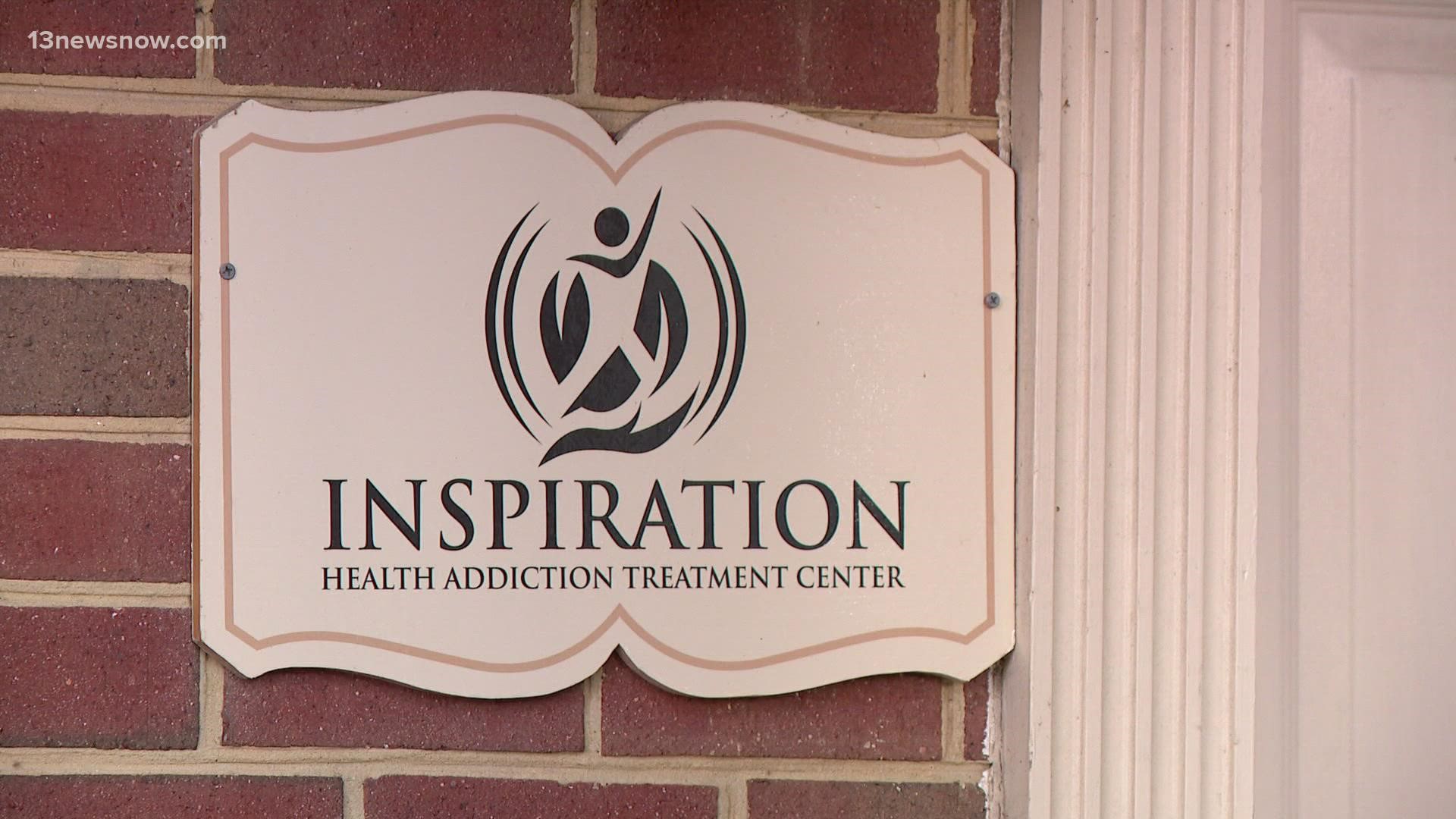VIRGINIA BEACH, Va. — Drug overdose deaths have hit a new high as over 100,000 people in the U.S. died during the first year of the pandemic. That's about one person dying every five minutes.
That’s also almost a 30% increase from 2019.
The vast majority of those deaths were due to opioids, particularly synthetic opioids like fentanyl.
Melissa Merritt got hooked on drugs when she was 15. It started with marijuana and progressed into opioids and crystal meth.
"I was doing things for drugs that... I broke the law. I've been to prison," she said.
She said it was hard to finally accept help when, at the time, she didn't want it.
"I was kind of strong-armed into treatment because I didn't want to do it on my own," said Merritt. "The phone is real heavy when I would try to ask for help in the right way. But when I had to call the dope man, it was super light."
Now at 42, she’s been sober for four months.
"I went to a sober living house and that really helped me," she said. "It was little accomplishments that helped me stay sober, and getting into a routine, And what works for me also is a 12-step program. Changing, of course, people places and things."
But, those 100,000 people who overdosed in the last year, won’t get the chance to say the same thing.
"I get nauseous. It breaks my heart. You know, it doesn't have to be that way," said Leah Hancock, executive director with Inspiration Health Addiction Treatment Center.
Medical Director Dr. Eric Jones told 13News Now people don't choose to wake up and become addicts.
"It's kind of scary because the numbers are going up. What we'd like to see is this kind of level-off and the numbers go down, and in order to do that, it's education and getting people help."
Jones attributed that rise to a number of things.
"I think the pandemic had a lot to do with it. The availability of drugs, the cost," he said. "You throw in the fentanyl which is becoming more prevalent because the reality is, drug-dealers don't care. They're about making a buck. They don't care what they're doing to people"
He said they’re doing what they can to get that number down with a holistic approach to recovery, with medical treatment alongside counseling.
"The majority of people that we see are in the most productive ages and times of their lives," he said. "To see that turned around and people become whole again, it's very rewarding."
For him, it's about giving back and helping others in a way that wasn't available to his brother 15 years ago.
"It has a personal meaning to me because I had a brother who I watched drugs and alcohol destroy him, and this kind of program was not available when he went through what he went through."
Hancock said because of a state program, they’re also able to provide Narcan for free to anyone that may need it.
"We train our patients on it. Show them how to use it," she said. "We give it to them so that if they're around anyone or their family member or friend or happens to them, it will save their life."
She said whether you call to make an appointment with them or just walk in, they'll help you and treat you like family.
"You come in, you'll meet with a nurse, you'll meet with Dr. Jones and you'll also meet with a licensed counselor for assessment, and then they take you from there to create a care plan for you to help start your road to recovery."
She said if your loved one doesn’t see they need to get help, take that first step for them.
"Don't be afraid to reach out. That first step is to step up for your loved ones."
Merritt said realizing there's more to life than drugs is what flipped that switch inside of her.
"It was no longer me being sociable, and at first that's how I was getting high and using, but then it was like: 'No, I was just in a bathroom.'"
She said now, she wants to help other people going through what she's been through. One recovering addict helping another.
"I guess God has a purpose and a plan for my life. I may not see it, I may not understand it, sometimes I question it," she said.
Her message to anyone struggling with addiction is "accept help."
"It's scary to make yourself vulnerable, but I did it and it's a risk, but without a risk, there's no reward," she said.
If you or a loved one are ready to take that step, you can call Inspiration at (757) 938-3654 or visit their website for more information.

